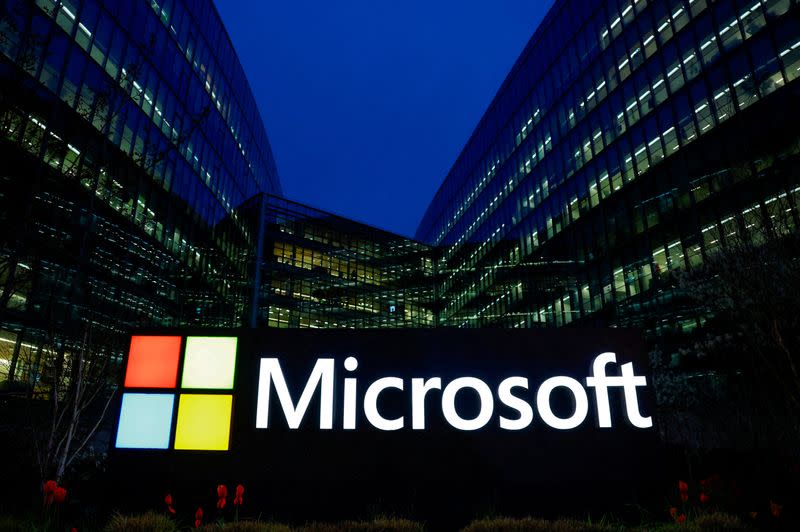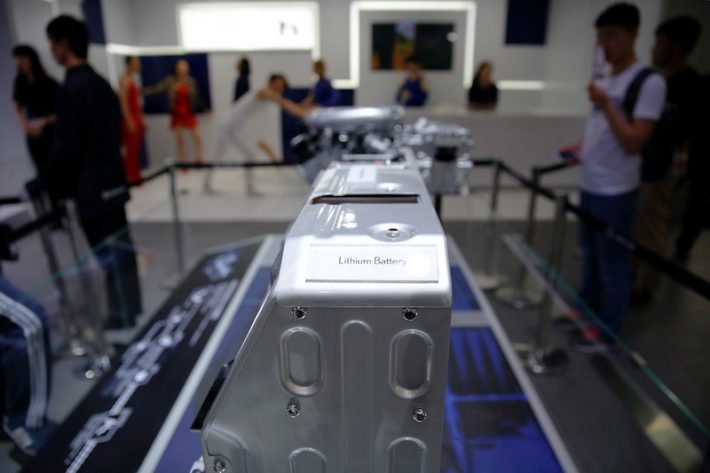A top Microsoft executive has said the company’s high-profile deal with G42, a firm backed by the United Arab Emirates, could eventually involve the transfer of sophisticated chips and artificial intelligence tools.
The tie-up is being monitored by senior Republicans in Washington, one of whom has warned that the sales accord could have national security implications.
In an interview this week, President Brad Smith said Microsoft’s agreement with G42, many details of which are reported here for the first time, could progress to a second phase that entails the export of crucial components of AI technology. That includes model weights – a crown jewel of AI systems that determine how powerful they are.
ALSO SEE: Stellantis CEO Calls China EV Tariffs a ‘Trap’. He May Be Right
Concern over AI systems
US officials have said that AI systems could pose national security risks, for example by making it easier to engineer chemical, biological and nuclear weapons. The Biden administration in October required the makers of the largest AI systems to share details about them with the US government.
To move forward, the deal would require the approval of the US Department of Commerce. Smith said there is no firm timeline for the second phase of the G42 deal, while executives have said the agreement has safeguards to protect Microsoft’s technology and prevent it from being used by Chinese entities to train AI systems.
But those measures have not been made public, and some US lawmakers question whether they are adequate.
The closed-door nature of the negotiations between two private companies over the terms and safeguards on transfers of US technology have alarmed some lawmakers.
“Despite the significant national security implications, Congress still has not received a comprehensive briefing from the executive branch about this agreement,” Michael McCaul, the Republican chair of the foreign affairs committee in the US House of Representatives, said.
“I am concerned the right guardrails are not in place to protect sensitive US-origin technology from Chinese espionage given the (Chinese Communist Party’s) interests in the UAE.”
The Commerce Department already requires notifications and, in several regions, export licences to send AI chips abroad. But the Microsoft-G42 deal highlights gaps in US laws as regulators rush to keep up with fast-moving technology.
At present, for example, there is no regulation restricting the export of AI models, though McCaul and a bipartisan group of lawmakers this week advanced legislation that would give US officials more explicit power to do so.
Microsoft executives said the company welcomes a debate on a new legal framework governing the transfer of AI technology and that the deal with G42 requires the UAE firm to comply with US regulations as they evolve.
“Fundamentally, what we’re focused on is trying to ensure that American technology can move around the world safely and securely,” Smith said.
Government security assurances needed
When Microsoft and G42 announced the deal last month, it was billed as drawing G42 closer to the US and spreading US technology influence amid strategic competition with China. Microsoft is investing $1.5 billion in G42 with Microsoft’s president, Smith, taking a seat on its board.
The companies did not give details about which technologies might be transferred to the UAE or other countries or which specific security safeguards would be put in place. Some of those details are being reported here for the first time.
The broad intent of the deal is for Microsoft and G42 to jointly take AI technology into regions where neither could do so as effectively alone. An early example is a deal in Kenya announced by the two companies on Wednesday.
The Microsoft-G42 deal is an agreement between the two companies that requires each to give security assurances to their respective home governments, but there is no direct agreement between the US and UAE governing the transfer of sensitive technologies.
The two companies could seek to transfer those technologies to other markets beyond the UAE, including places like Turkey and Egypt, Microsoft executives said.
AI ‘model weights’
Smith said many of the details of the deal remain to be worked out, including how to protect what are known as AI “model weights,” which is the critical part of an AI model that defines how it responds to questions or prompts. Those weights are obtained by training an AI model with huge amounts of data, often at great expense.
Model weights currently cannot be encrypted while in use, and Smith estimated the promising technical approaches for doing so remain at least a year away.
Smith said Microsoft has considered several alternative options to protect its technology, including a “vault within a vault” that would involve physically separating parts of data centres where AI chips and model weights are housed and restricting physical access.
“I suspect by the time we’re done, we’re going to end up with a regulatory regime or trade export control approach that will be applicable broadly and not just to Microsoft and G42,” Smith said.
Under the Microsoft deal, G42 will also follow a “know your customer” rule to determine who is using Microsoft’s technology and will not allow Chinese firms to use it to train AI models, Microsoft executives said. US regulators have proposed a similar rule, but they have not yet enacted it.
G42: A strategic decision for advanced tech
Talal Al Kaissi, an executive who handles partnerships for G42’s AI work, said: “We adopted a strategic commercial decision to partner with US companies when it comes to advanced technologies. And we’re very clear on the fact that in order to do so, we will need to adhere to the requirements and our partners and government regulatory requirements or export control regulations.”
Under the deal, Microsoft would have the ability to impose financial penalties on G42 and enforce them in arbitration courts in London, Microsoft said.
That means Microsoft would not be forced to work through the UAE legal system to ensure G42 complies with its obligations and could seize assets in many countries if G42 is found in violation of the agreement, Microsoft said.
The Emirati firm, which is developing artificial intelligence, has divested investments in China and began the lengthy task of pulling out Chinese hardware amid US concerns over its relationship with Chinese businesses, Reuters said in February.
Precisely how US Commerce Secretary Gina Raimondo will allow the deal to move forward remains unclear. Smith said the provisions are “informal” and that “certainly with this Secretary of Commerce, one knows pretty clearly whether she approves or rejects something.”
In a statement, a Commerce Department spokesperson said any technology transfers would be governed by export controls, “including currently in force licensing requirements” for AI chips and “potential future controls.”
- Reuters with additional editing by Jim Pollard
ALSO SEE:
US And China Set to Discuss AI Risks at Geneva Meeting
US May Deny China, Russia Access to Advanced AI Models
US Asks China to Declare AI Will Never Control Its Nuclear Arms
Fears Rising on Impacts From Unrestrained AI Projects
Blacklisted Chinese Surveillance Maker in Saudi Fund Tie-Up
Biden, Xi Will Vow to Ban AI in Nuclear Weapons, Drones – SCMP
China Joins US, EU in Vow to Tackle ‘Catastrophic’ AI Harm Risk
AI Poses Extinction Risk, as Bad as Nuclear War, AI CEOs Say
























